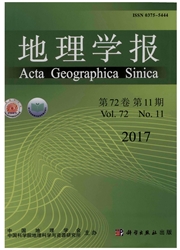

 中文摘要:
中文摘要:
土地利用转型是土地利用变化的表现形式之一,也是由IGBP和IHDP联合发起的全球土地研究计划(GLP)的重要研究内容.目前土地利用/覆被变化(LUCC)研究仍然有待进一步理论化,在学科综合与集成基础上提出的假设对土地变化科学显得尤为重要.土地利用转型研究需要寻求一种综合的方法,来对社会和环境变化的时间尺度和历史背景进行整合.通过分析特定时期内中国农村建房的影响因素及相应的管理政策,在了解中国农村建房发展过程的基础上,提出了中国农村宅基地转型趋势的理论假设:随着社会经济的发展,农村宅基地在增加的建设用地总量中所占比例将由高逐渐降低,直到这一比例趋向于一个固定值.最后运用长江沿线样带农村宅基地转型研究结果验证了该理论假设.
 英文摘要:
英文摘要:
This paper develops a theoretical framework for rural housing land transition in China. Land use transition refers to the changes in land-use morphology over time, and it usually corresponds to a particular socio-economic development phase. Land use transition is also one of the major research contents of Global Land Project (GLP), a joint research agenda of the International Geosphere-Biosphere Programme (IGBP) and the International Human Dimensions Programme on Global Environmental Change (IHDP) to improve the understanding of land system dynamics. Although our understanding of land-use and land-cover change (LUCC) has improved through carrying out a lot of studies on land system, it seems that LUCC research still remains under-theorized. Research on land use transition needs new methods to incorporate the historical aspects and timescales of social and environmental changes. The discipline which in principle should be most able to meet the demands is geography. There is tremendous scope for this kind of study, which needs the knowledge concerning physical geography as well as human geography. By understanding the change process of rural housing in China, theoretical hypothesis on rural housing land transition was put forward. It is assumed that rural housing in China will undergo specific stages-the proportion of rural housing in the increase of total construction land will decline gradually with the development of the local economy, and the end of the transition corresponds to a kind of equilibrium between rural housing and other construction activities. Henceforth, the research results of rural housing land transition in the transect of the Yangtze River were used to verify the above hypothesis.
 同期刊论文项目
同期刊论文项目
 同项目期刊论文
同项目期刊论文
 LAND USE AND SOIL EROSION IN THE UPPER REACHES OF THE YANGTZE RIVER: SOME SOCIO-ECONOMIC CONSIDERATI
LAND USE AND SOIL EROSION IN THE UPPER REACHES OF THE YANGTZE RIVER: SOME SOCIO-ECONOMIC CONSIDERATI Socio-economic development and land-use change: analysis of rural housing land transition in the Tra
Socio-economic development and land-use change: analysis of rural housing land transition in the Tra Socio-economic driving forces of land-use change in Kunshan, the Yangtze River Delta Economic Area o
Socio-economic driving forces of land-use change in Kunshan, the Yangtze River Delta Economic Area o Land Use Changes of an Aeolian-Loessial Soil Area in Northwest China: Implications for Ecological Re
Land Use Changes of an Aeolian-Loessial Soil Area in Northwest China: Implications for Ecological Re Spatio-temporal patterns of land use change in typical transect area along China National Highway 10
Spatio-temporal patterns of land use change in typical transect area along China National Highway 10 Urban ecological security assessment and forecasting, based on a cellular automata model: A case stu
Urban ecological security assessment and forecasting, based on a cellular automata model: A case stu 期刊信息
期刊信息
